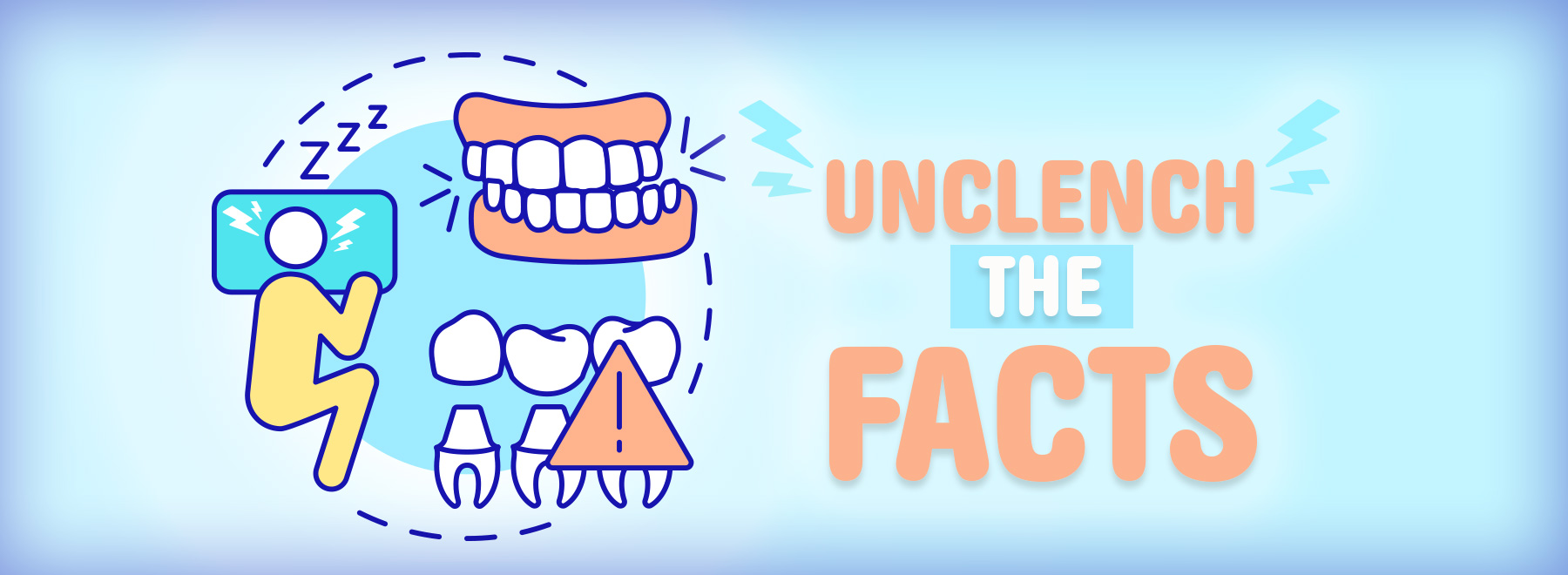Unconscious teeth grinding can cause lasting damage
Teeth grinding is a condition that often goes unnoticed until it wreaks havoc on your dental health, manifesting as jaw pain, headaches or even cracked teeth.
Bruxism, commonly known as teeth grinding, is a condition where individuals may gnash, grind or clench their teeth unconsciously. This can occur during the day or at night. However, individuals who suffer from sleep bruxism may not be aware of their condition until resulting symptoms occur.

"Many times, bruxism is caused by stress, whether it’s related to work, relationships or something else,” said Dr. Kimberly Wade, assistant professor of care planning and restorative sciences. “Many patients don’t even realize they grind their teeth because they do it at night.”
Teeth grinding or clenching may be loud enough to wake your sleeping partner. Other signs of sleep bruxism include flattening of teeth or wearing down of enamel, tooth sensitivity, tired or tight jaws, a dull headache or pain that feels like an earache and damage from chewing on the inside of your cheek.
“Often, patients complain of a sore jaw in the morning that results from them clenching their jaw overnight,” Wade said. “Clinically, we see that the teeth have a flattened appearance from the teeth being worn down over time."
Certain medications, such as those used to treat depression, seizures and ADHD, can trigger teeth grinding. Because those prescriptions affect the brain’s neurotransmitters and chemical reactions, it can affect muscle responses. Teeth grinding can also be genetic or be caused by consumption of alcohol, caffeine or smoking. Approximately 50% of adults with obstructive sleep apnea also have sleep bruxism.
“Extended periods of bruxism can result in cracked teeth or teeth so worn down that the dentin is exposed, and the patient will experience tooth sensitivity,” she said. “If left untreated, this can lead to tooth loss and chronic oral and facial pain.”
If a patient finds themselves grinding or clenching their teeth during the day, Wade suggests lifestyle changes to help eliminate or reduce stress are incredibly helpful for correcting those behaviors. Techniques such as meditation, counseling and physical exercise can help reduce anxiety and stress, potentially reducing episodes of bruxism.
“Having the patient to become more aware of when they clench or grind and teaching them how to relax their jaw when they find themselves doing it can also be helpful,” she said. “Behavioral therapies can help individuals develop healthier coping strategies.”
Dentists may also recommend mouthguards or splints to protect the teeth from grinding damage. These are worn at night to prevent tooth wear and jaw strain, as well as help retrain the jaw to align itself. However, if the patient suffers from a sleep apnea disorder, they should use a mandibular advancement device that doesn’t restrict airflow.
For teeth that are cracked or worn down as a result of bruxism, crowns are typically recommended.
If a person suspects they are grinding their teeth, Wade said they should see a dentist as soon as possible to verify and explore options for treatment.
For more information or to schedule an appointment with the Department of Care Planning and Restorative Services at the UMMC School of Dentistry, call 601-984-6185.
The above article appears in CONSULT, UMMC’s monthly e-newsletter sharing news about cutting-edge clinical and health science education advances and innovative biomedical research at the Medical Center and giving you tips and suggestions on how you and the people you love can live a healthier life. Click here and enter your email address to receive CONSULT free of charge. You may cancel at any time.



